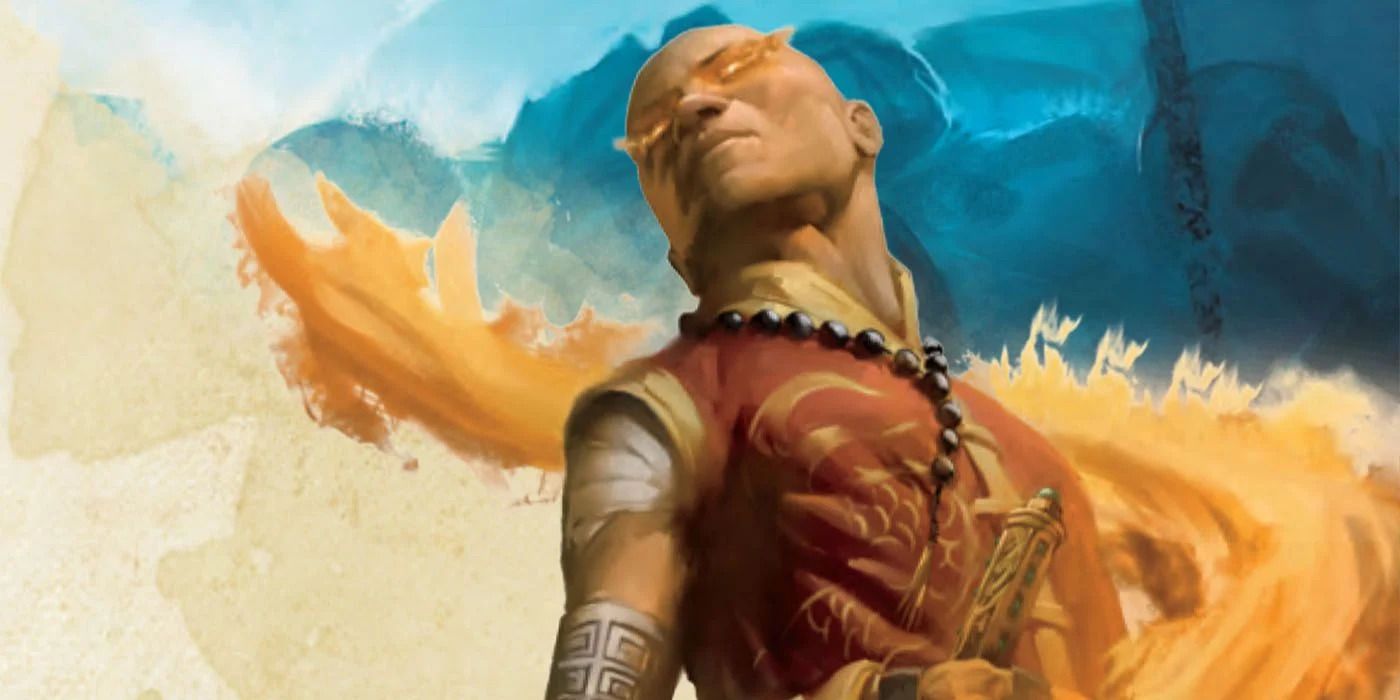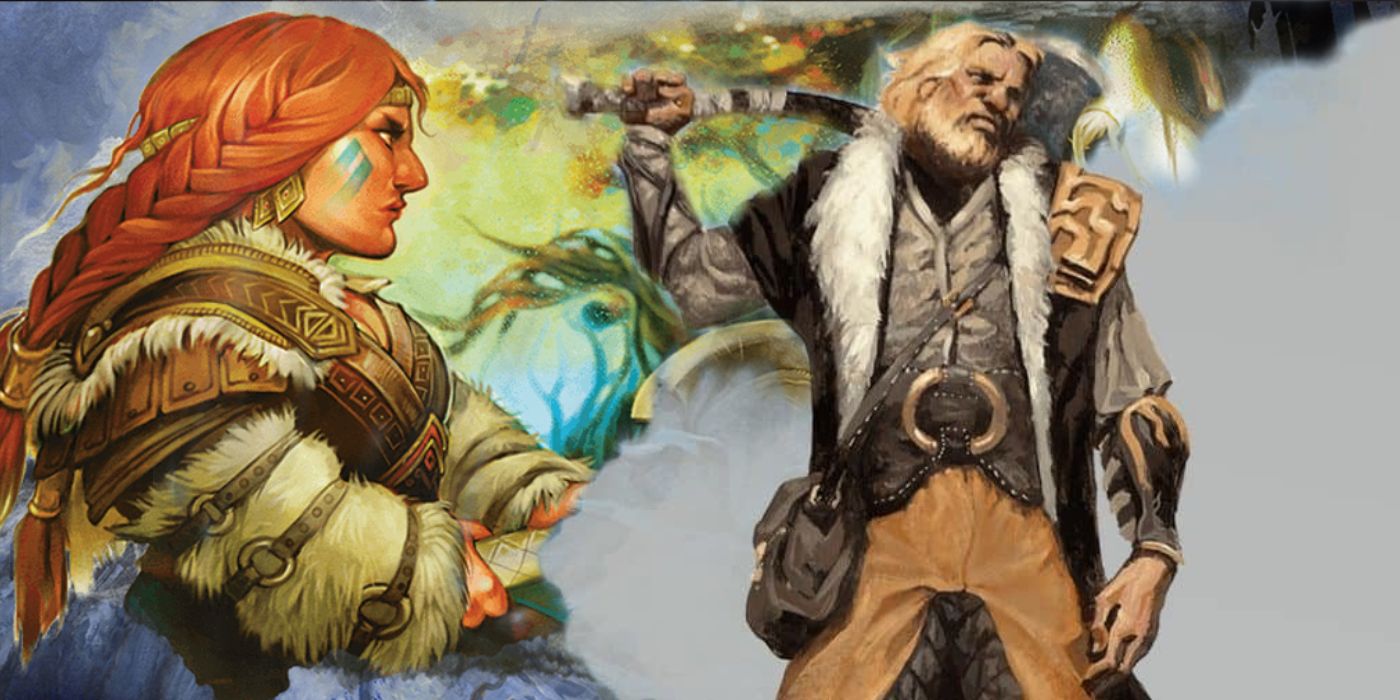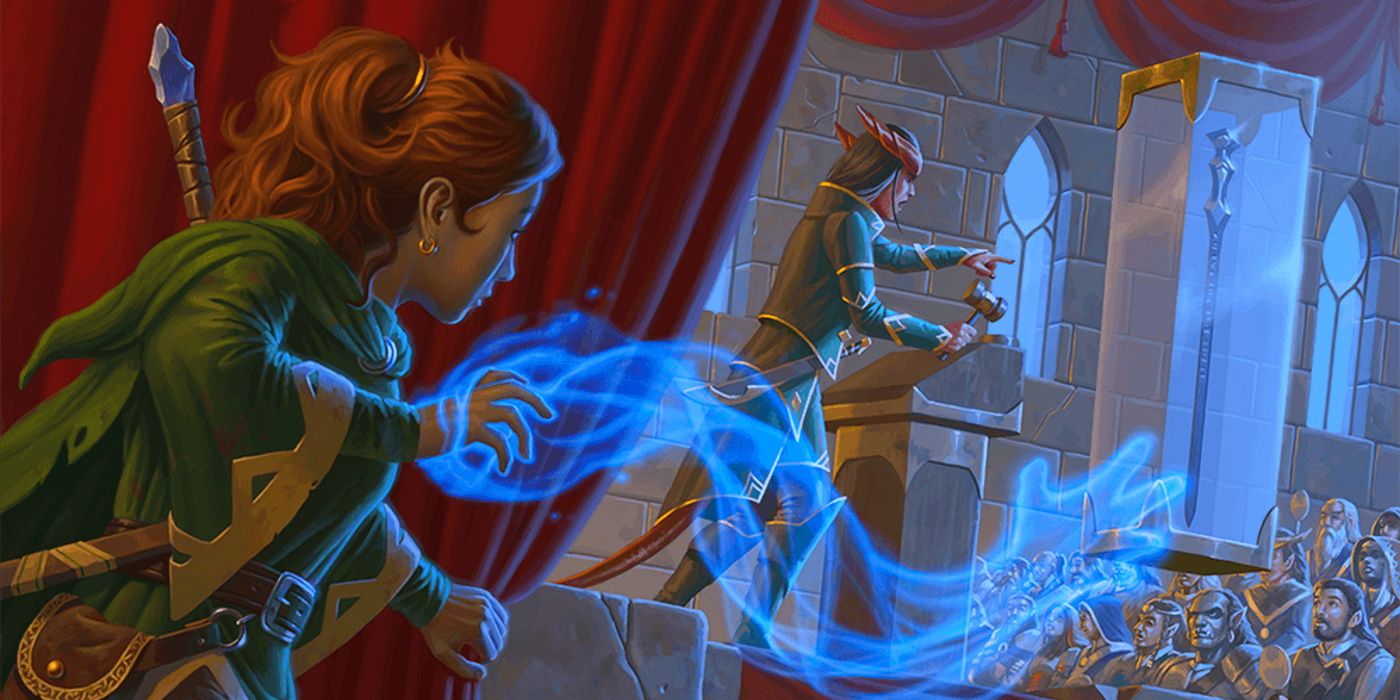[ad_1]
Recently, Dungeons & Dragons developer Wizards of the Coast released new playtest content for its upcoming One D&D ruleset, introducing tabletop players to the updated versions of the druid and paladin classes. The new gameplay mechanics and updated abilities for the druid (a shapeshifter, warden of nature, and wielder of elemental magic) and paladin (an oath-sworn champion who smites evil and bolsters allies with protective miracles), coupled with previously revealed rules for the cleric, bard, rogue, and ranger, hint at two major trends of character class design for One D&D – giving each class more versatility, and giving certain class groups a shared signature power.
The playtest rules for One D&D, the system designed to replace or add new updates to 5e and prepare for what is essentially DnD 5.5e, divides the 12 classic character classes into four categories: expert, mage, priest, and warrior. So far, playtesters have gotten to offer feedback on the expert classes (rogue, bard, and ranger) as well as the priest classes (cleric, druid, and paladin). Besides revising certain class powers to be less situational, all the expert classes have the Expertise feature, granting bonuses to certain Skills, while all the Priest classes have a Channel feature that invokes divine magical effects. Such playtest changes might indicate what to expect from One D&D’s warrior and mage classes.
According to the expert classes playtest document for One D&D, the warrior category will contain the following classes: fighter, barbarian, and monk. In DnD fifth edition, each of these mechanically distinct classes are designed to be masters of physical combat. The barbarian’s combat prowess is centered around their Rage feature, which increases their melee attack damage and reduces damage from certain enemy attacks. The monk, modeled after the martial arts masters of Wuxia literature and kung fu films, enhances their bodies with an internal energy called Ki. The fighter, the oldest and simplest class of DnD, can simply wield any weapon, wear any armor, and make lots of attack rolls each turn.
Developers working on the joinable One D&D playtest will almost certain try to give the fighter, barbarian, and monks classes a shared signature feature, much like the Channel feature of priest classes or the Expertise feature of expert classes. In 5e, the common motif of these three martial DnD classes is their resilience in close-quarters combat and the abilities to make many attack rolls each turn in combat. To better mechanically represent this distinct quality of warrior classes, One D&D developers might transplant the Action Surge feature of 5e fighters to barbarians and monks, while also letting warrior characters spend their Surges to perform feats other than attacking a lot.
The mage class category in One D&D will represent every DnD 5.5e character class that casts arcane spells – the spellbook-studying wizard, the pact-forging warlocks, and the chaotic fonts of magical power known as sorcerers. Narratively, each of these spellcasting classes acquires magical power through different methods and have access to different spells. Mechanically, however, each of these three classes can cast spells themed around destruction and utility (but not healing or resurrection). Additionally, each of these classes in DnD 5e has a unique feature for augmenting or altering the spells they cast (the Invocations of warlocks, the Metamagic of sorcerers, etc.).
To strengthen this theme of mage classes as fantasy heroes who pursue and master the secrets of magic, One D&D may well try to update the wizard, warlock, and sorcerer DnD subclasses to make them better with a shared signature feature that lets them modify the spells they choose to cast. The 5e sorcerer’s Metamagic feature, for instance, might be reworked into a feature compatible with the themes of wizards and warlocks (though this could damage the sorcerer’s niche of having less spells than a wizard, but more control over what those spells can do). Alternately, One D&D could create a new mechanic themed around mage classes creating new arcane spells of their own.
One D&D Warrior Classes Will Likely Gain More Non-Combat Features
The three pillars of roleplay, as described in the rule book for Dungeons & Dragons 5e, are combat, exploration, and social interaction. Some of the best character classes in contemporary DnD have features or spells that let them excel in combat scenarios or classic dungeon crawls (by attacking enemies, healing or supporting allies, etc.). The warrior classes of DnD, however, generally lack non-combat spell or powers that come in handy during scenes of social interaction. If min-maxed, they might also have a low Charisma and Wisdom scores and no proficiencies in key social skills like Persuade, Deceive, Insight, or Intimidate, forcing DnD players with warrior characters to interact with NPCs on a purely narrative level.
To keep DnD character classes like the fighter (defined by their mastery of weapons, armor, and attacking a lot) from being mechanically useless during scenes of social interaction, One D&D might help shy DnD players roleplay by adding more features with non-combat applications to the warrior classes. Ideally, any social interaction abilities these classes gain would match their fantasy hero archetype (rather than crudely mimicking the charming abilities of the bard class). The One D&D barbarian, for instance, might have features that let them intimidate NPCs without investing heavily into Charisma, while fighters might gain features themed around leading or commanding NPCs, similar to the DnD 4e warlord class.
One D&D Mage Classes May Have More Ways To Use Intelligence
In the basic SRD rules for Dungeons & Dragons 5e, the wizard class is the only one that uses Intelligence as its primary ability. Almost every other spellcaster DnD 5e class or subclass uses their Wisdom or Charisma score for magical attack rolls or saving throws. As a result, DnD 5e players who want to play an intelligent character who’s not a Wizard have a very limited set of alternative class options (the artificer class, the Eldritch Knight fighter subclass, the Arcane Trickster or Mastermind rogue subclasses, etc.). For this reason, One D&D may modify one or more of the primary Dungeons & Dragons classes to make use of the Intelligence attribute more – for instance, by modifying the warlock class rules to let players use Intelligence or Charisma for spellcasting.
Source: Dungeons & Dragons/YouTube
[ad_2]
Source link

.png)


